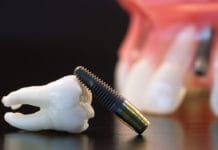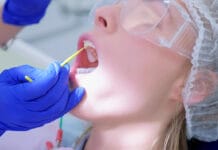When asking patients about their medical health updates, it’s crucial to listen for the answers and probe for greater depth of response. We all have dental patients who casually report no changes. It is best to read the medications from the previous history and ask about each medication. Validate the accuracy of each medication and any potential new prescriptions, over-the-counter supplements, or hospitalizations.
Background Behind Lifestyle Changes
Recently, a patient presented for a routine prophylaxis, and his wife casually mentioned a rough period in their lives since their last appointment. Before even seating the patient, the questioning was to discover if this was a medical issue. They talked of some weight loss, a new exercise program, and a healthier, cleaner diet for both of them. They were both happy with the changes in their overall appearance and increased energy. After being complimented on the lifestyle changes, I wanted to get to the “why” they decided to make the changes.
This is where the real story begins. The wife states that, prior to international travel, they wanted a physical, and the physician ordered a baseline stress test because of weight issues, high blood pressure, and increased cholesterol. Several weeks of increased testing and a missed vacation later, the results were eventually revealed. This asymptomatic, overweight male snorer had two areas of 100% blockage leading to the heart. Open heart surgery was successfully performed.
When the patient presented in the dental office, he was nine weeks post-op.
Neither patient had any idea that dental treatment is contraindicated immediately following heart surgery. When questioned, they requested prophylaxis be performed as they were already three months “overdue” and felt it would be too difficult to reschedule.
I suggested calling the cardiologist to obtain medical clearance and have the patient hear directly from the surgeon whether the treatment must be postponed or could be performed. The cardiology office was quick to answer when it was stated that a doctor’s office was calling about a mutual patient, and the patient was currently in office expecting treatment. Name, date of birth, and surgery date was all the information needed before a definitive answer was given. This surgeon requires one full year prior to any dental treatment unless it is an emergency situation.
I then put the patient and his wife on speakerphone so the cardiologist could explain to them that dental treatment would not be allowed and explained fully the major bacterial complications that could occur. Both were shocked but appreciative to have the information. The husband was rescheduled for one-year post-surgery; the wife continued with her scheduled prophylaxis.
An Eye Out for Side Effects
The amazing thing is how often patients do not realize the importance of their medical history. We often know the medications and what conditions they are used to treat. If not, we need to feel comfortable asking and inquiring to see if there are any side effects. Dry mouth, as we know, is common with many medications, but it is also common with many autoimmune diseases. It is our responsibility to know what a side effect is versus what is disease, and how to treat appropriately.
Many patients are routinely taking “baby aspirin” or 81 mg aspirin daily. We now know that treatment is no longer indicated for routine health and only under careful medical monitoring as there has been a significant increase in strokes and excessive bleeding from the blood thinner. We can safely inform patients that this treatment protocol has been altered, and a quick call or appointment with the medical doctor may be indicated. Obviously, we never offer medical advice, but a well-timed suggestion to call and update their medications and schedule a physical can change a patient’s life.
Something as simple as asking about food allergies also is becoming increasingly more important as many patients have allergic reactions to common ingredients. Check your fluoride varnish ingredients; some contain allergens such as pine nut rosin that can create a life-threatening reaction, though it is rare. Before prescribing prescription pastes containing Recaldent, please observe to patients that recent incidents point to possible reactions in patients with a milk allergy. Verify there is no true milk allergy to minimize the risk of a life-threatening emergency. Patients with allergies to food dyes may require different topical anesthetics, as red and green topical in particular may contain carmine, annatto (for red dye) and FD&C yellow #5, which may cause a reaction in your sensitive patients.
The simplest way to avoid a potential reaction is to hand your patient with allergies a list of any product you plan to use or recommend to allow them the final decision in approving its use.
Our chair time is limited, but a moment or two on the medical history can directly influence patient care creating a much more positive experience for all.












